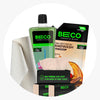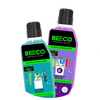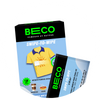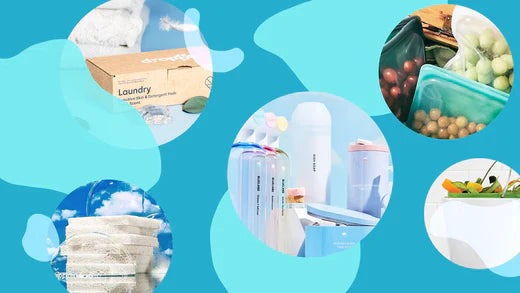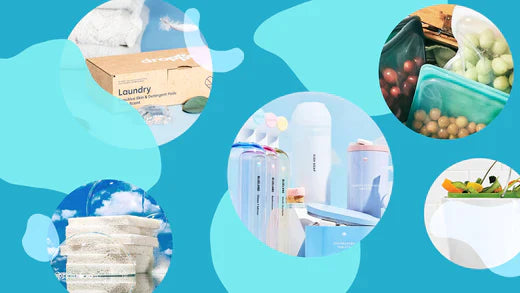We are telling you, you need two. That’s it—two small changes to make big changes. If you want to make a big impact on the environment but don’t want big investments or major changes, this blog is for you.
In this blog, we are going to be talking about two products for a better environment!
First up we have Cloth bags

100’s of people must have told you, a cloth bag is the need of the hour, well it is. But, if you are still not convinced, let’s do a little math for you.
Imagine one person decides to use cloth bags or cotton bags instead of plastic bags every day.
By doing this, they save around 1,825 plastic bags each year and a total of 5,475 bags over three years. This means less plastic waste – about 9.125 kg saving about 36,090 kg over three years!
That's a small change with a big impact, for you!
Serious Impact, Simply Achieved
Opting for a cloth bag over plastic isn't a small step; it's a pivotal leap for the environment. You're not just transporting groceries; you're shouldering the weight of change.
Consider this staggering fact: 8 million metric tons of plastic infiltrate our oceans yearly and as we all know micro-plastic is now being found in human blood too! Yikes! It's an urgent call for action.
The Sobering Reality: Racing Against the Clock
As we speak, a plastic pandemic is strangling our oceans. If we don't act decisively by 2050, plastic's weight in the ocean will eclipse marine life's existence. It's not a mere prediction; it's a dire warning. Envision oceans becoming landfills rather than habitats. The time to switch to cloth
bags isn't tomorrow or next week; it's now.
Next up we have - Compostable garbage bags

It's not just a bag; it's a game-changer for our planet. Let's dive into why this simple switch can be your superhero in the fight against waste.
What is a Compostable Garbage Bag?
Think of it as a bag with a green thumb. Compostable garbage bags are eco-friendly champions that, unlike their plastic counterparts, break down into nutrient-rich compost within a mere 180 days. It's not just a bag; it's a contribution to a healthier planet.
Now, here's the beauty – these bags are not a one-and-done deal. They're reusable! Use them, compost them, and then use them again. It's a sustainable cycle that keeps giving back to the environment.
How to Use: From Bin to Compost
Using compostable garbage bags is a breeze. Simply line your trash bin with one, toss in your organic waste, and watch the magic happen. These bags decompose naturally in 180 days, turning your waste into nutrient-rich compost for the soil.
The Power of One Household: Environmental Math
Now, let's crunch some numbers.
Imagine if every household in India made the switch to compostable garbage bags. That's millions of bags, creating a collective impact that's hard to ignore. It's not just about numbers; it's about a nation collectively saying no to plastic waste.
Serious Impact: Your Simple Choice Matters
By choosing a compostable garbage bag, you're not just disposing of waste; you're actively contributing to a cleaner environment. The impact is real, and the need is urgent.
Compostable vs. Plastic Trash Bags
|
Category |
Compostable Garbage Bags |
Plastic Trash Bags |
|
Environmental Impact |
Breaks down in 180 days, enriching soil |
Lingers for centuries, harming ecosystems over time. |
|
Decomposition Time |
Decomposes quickly, returning to nature in months |
It takes hundreds of years to break down, contributing to pollution |
Conclusion: Your Choices, Our Future
In this tag team of eco-friendly picks, your choices wield serious influence. Using cloth bags or cotton bags isn't just a switch; it's a rebellion against the ocean-drowning plastic crisis. And those compostable garbage bags? They're nature's undercover warriors, breaking down in 180 days.
But here's the kicker: by 2050, we might be drowning in more plastic than fish. Let that hit you hard.
So, let's cut to it. Your choices aren't just about cloth bags or cotton bags; they're a stand against a plastic-saturated future. It's not a suggestion; it's a call to arms. Time to act, one bag at a time.

